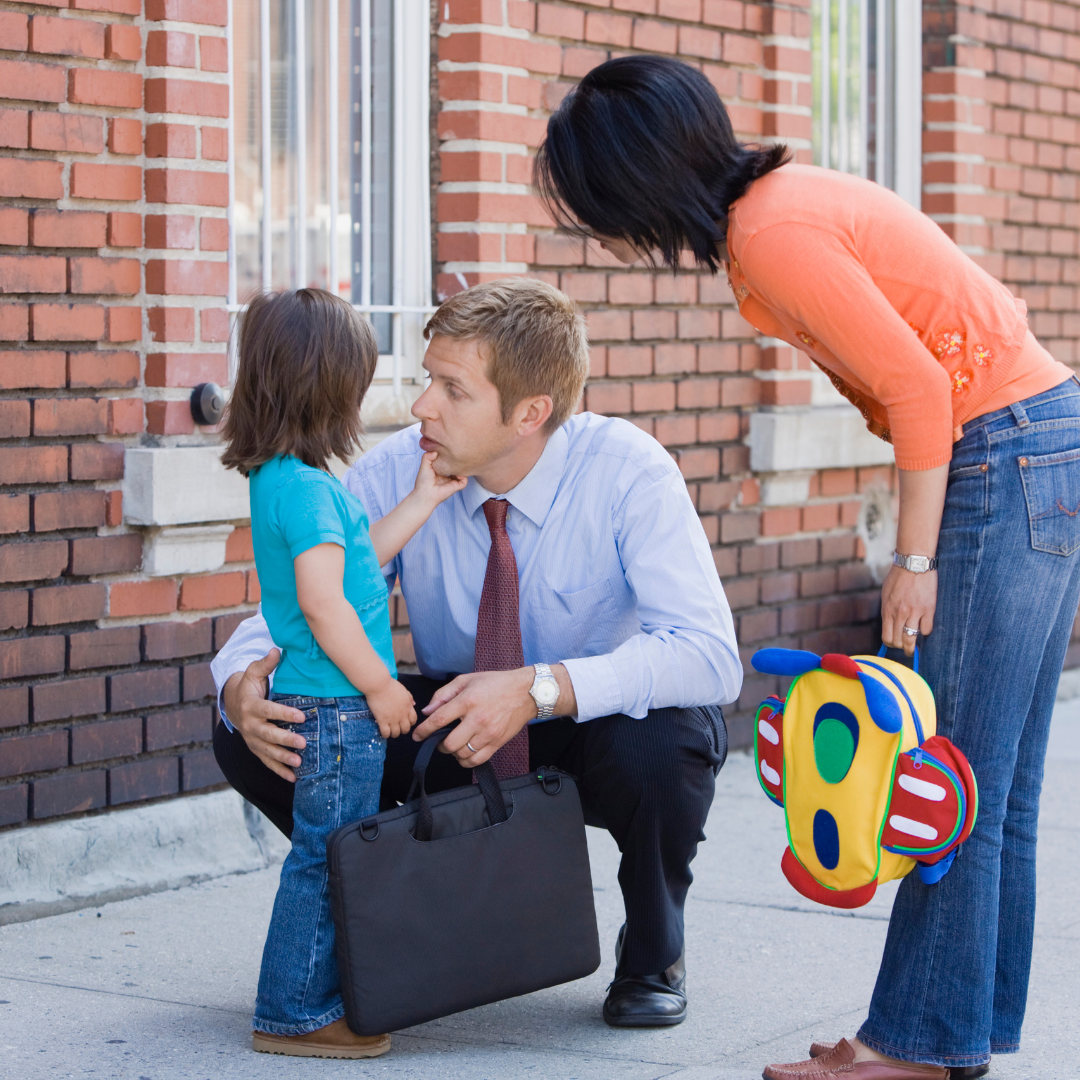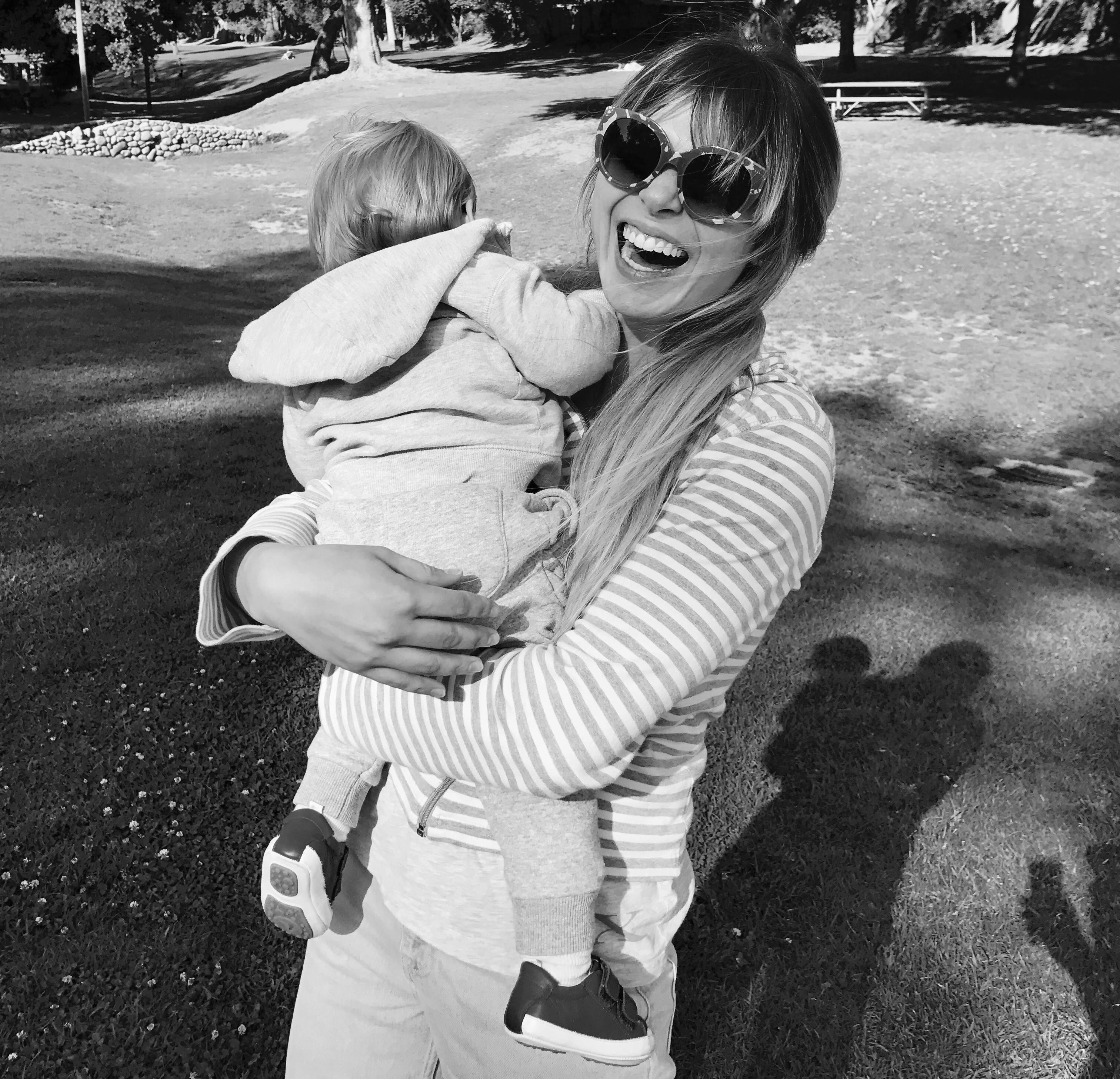
Almost every parent, at least once felt helpless when their child unexpectedly began to resist going to school.
At this stage, it is common for children to feel excitement about playing with peers followed by bursting into tears, not wanting to stay away from you. It is important to understand that children are learning to express their feelings and that’s how they tell us that they want to play but don’t want to miss us. When children go to school, they share the space with other children and learn to find ways to deal with frustration when parents are not around. We can’t forget that going to school also means being exposed to situations children won’t have at home but are fundamental life skills.
What do you feel when taking your child to her classroom? How was your experience and what are your memories of going to school?
Sometimes we project our own feelings and experiences in our children. We end up interpreting their reactions through our lenses forgetting that they are building their own story. Our fears about how our littles will feel when we drop them off can get in the way transmitting insecurity which may be one of the reasons why the drop offs become a real challenge.
The 6 steps that will help you understand the resistance
- Reflect How is your morning routine? Are you rushing to get things done before you leave? Are you late and running out of time to get yourself and your child ready? Do you have time for yourself? – Sometimes we don’t realize but the moment before leaving the house is becoming chaotic not only for us but also for our children. They start to connect that tension before leaving the house to the event coming next, in this case going to preschool. We all know how difficult it is to get everything ready – including meeting our own needs – to get out of the house in time. Preparing as much as possible ahead of time, even the night before, can make this challenging event a more enjoyable moment when we create mechanisms to facilitate morning routine making steps more predictable to help guiding our children through the process.
- Be there for your child. Listen and be present when children express their feelings. Not all children – even adults – are able to express feelings verbally so be an observer, trying your best to make yourself available i.e. Validating feelings even if you don’t agree with them is a way to connect. Don’t forget these feelings are the cause of resistance so in order to help your child learn how to understand herself, respect whatever is causing fear and anxiety.
- Make a list. Simple, maybe obvious but necessary. When did my child eat for the last time? Is he tired? Was he asking my attention and I didn’t listen? May he be getting sick? Get back to it every time you need help understanding your child’s behavior. Yes! We’re all so busy that time flies by and we may not keep track of everything. No! You’re not a bad parent for that. Undress yourself from the guilt.
- School schedule. Children thrive with predictability, feeling safe knowing what’s going to happen. Make sure you know the activities and the schedule for the week. You can talk to them in positive matter, talking about the interesting things they will do and how much you want to know everything about his day when you pick him up.
- Talk to your child. “I hear you don’t want to go to school” – give the child space. You’re giving the child the signal you’re available, that you’re there for her. Don’t try to stop the crying. Allow the child to express her feelings the way she is developmentally ready for that.
Not all children will be able to express their feelings verbally, so without putting words out for them, you can gently encourage the child to talk about what’s upsetting her. “I see you are upset. What do you like play at school? I remember you loved playing with sand and water that day”. - Talk to the teacher. Ask the Teacher about recent events or something that could have possibly trigger the resistance. Don’t forget this is not uncommon and questioning boundaries is part of this development stage in order to make sense of life, however the school can refer to a professional if necessary.
Remind yourself that if you’re reading this, you’re trying to understand your child and that’s a huge step towards being respectful and responding to your child with the kindness we expect from the world. What we model is what our children will become.
Warmly,
Mariana Castaman
@theresponsiveparentsproject

